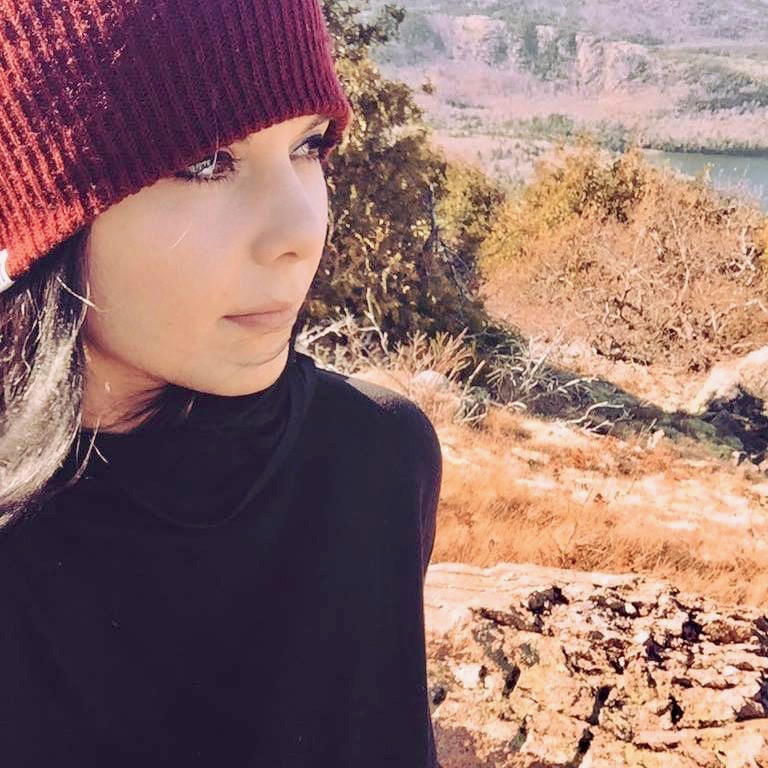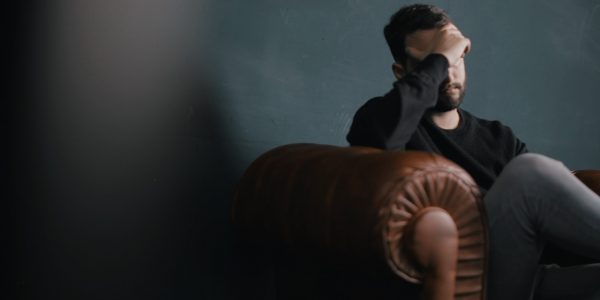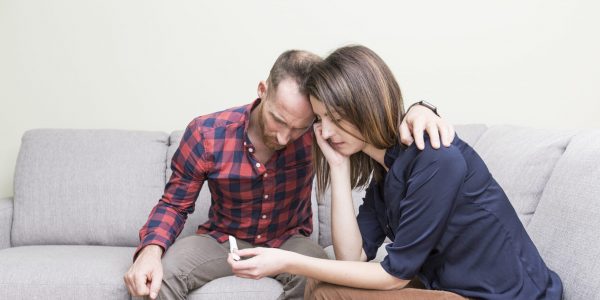LISTEN TO THIS ARTICLE:

This is Chloe’s story of alcohol and opiate addiction and recovery.
Chloe spent her childhood in a lovely small town just outside of Seattle, Washington. Streets were lined with huge evergreens bearing spiky brown cones and pine needles loosely covering the dense buffalo grass. It was a beautiful, friendly setting where Chloe was well-loved and went to good schools. An avid basketball player, she was chosen to play on a competitive team during the summers. By the time she was in her junior year she was getting such good grades that she was able to take college classes while still in high school.
Chloe’s mother was a single mom who managed her children’s lives well. Chloe and her two siblings were surrounded by lots of good, homemade food, love, kindness, and compassion. A strong faith and church life rounded out what was a most “normal” middle-class world.
“Uncomfortable in my own skin”
In spite of all of this, Chloe remembers, “As early as four years old I felt extremely uncomfortable in my skin. No matter what I accomplished – and I accomplished a lot – I always felt less worthy than others, as if something were wrong with me. For as long as I can remember I felt this tremendous void inside.”
Chloe did not experience any early-life trauma, abuse, or neglect. Nor can she think of any particular cultural or familial factors that would drive her to drink alcohol to excess.
“As early as four years old I felt extremely uncomfortable in my skin. No matter what I accomplished – and I accomplished a lot – I always felt less worthy than others, as if something were wrong with me. For as long as I can remember I felt this tremendous void inside of me.”
Discovering drinking
At eighteen, while on a student trip to Florence, Italy, Chloe and her friends were sitting outside on a balcony enjoying the beautiful spring evening. That’s when she got drunk for the first time. She recalls, “My roommates and I were suddenly singing along to a gangster rap song. It was as if I had arrived in a new world. I suddenly felt so warm, confident, and secure felt this complete sense of ease and comfort, a feeling that I’d never had before. I don’t even remember what we were talking about, but we were all laughing and feeling wonderful.”
One drinking binge quickly led to another, and then another, and for a while, there were no real repercussions. “I cannot say that I was always having fun, but I didn’t feel that void, and I finally felt like I could manage.”
Going deeper
When Chloe got back home, she started meeting new friends who introduced her to party drugs like Ecstasy. What started as experimentation with various substances eventually led to daily use, and Chloe started feeling sick.
“It was as if I had arrived in a new world. I suddenly felt so warm, confident, and secure and felt this complete sense of ease and comfort, a feeling that I’d never had before.”
As most of us would at the young age of eighteen, when she felt ill she turned to her childhood pediatrician. Recognizing the seriousness of her substance use, her doctor referred her to an outpatient treatment program that included mandatory twelve-step meetings. At Alcoholics Anonymous (AA) meetings Chloe met who she refers to as, “shiny, interesting, reformed people,” who explained the realities and risks of drug and alcohol use. While initially, she wasn’t very impressed nor enthusiastic about the twelve-step approach, Chloe’s new peer group did help her stay sober and abstinent for close to a year.
Deliverance
With the goal of becoming a chef, Chloe moved to downtown Seattle to attend culinary school. After an unfortunate car accident where she sustained some injuries, she received a prescription for oxycodone, an opiate painkiller. With her first dose, Chloe knew she’d found a brand-new mind-numbing deliverance from the void and angst within herself. She recalls the feeling of, “absolute oblivion.” In just two days, she took all the pills. Then she sought out more. And more.
This scenario of first exposure to opiates following an injury or a surgical procedure, which then leads to an opiate use disorder, is not uncommon. Exactly what makes one person more vulnerable than another to becoming dependent can rely on many factors, and is often hard to know for sure.
When pills were hard to find, a friend introduced Chloe to fentanyl. A very potent and fast-acting opiate, fentanyl is used medically for anesthesia, and many recent reports of lethal overdoses across the United States have been linked to its use. Chloe found herself needing to use small amounts every day to function well enough to get to school and work. She started losing her passion for hobbies and became disinterested in meeting her goals. She even lost concern for her friends and family.
Opiates dull the pain
By this time in her opiate addiction, Chloe was depressed and even suicidal. But opiates allowed her to keep going. She eventually switched from fentanyl to using small amounts of heroin. Chloe could smoke the heroin, get the effect she needed, get less sick, function better, and still keep working.
With her first dose, Chloe knew she’d found a brand-new mind-numbing deliverance from the void and angst within herself. She recalls the feeling of “absolute oblivion.” In just two days, she took all the pills. Then she sought out more. And more.
She held down positions as a chef, a restaurant manager, store manager, and bakery manager. She just kept telling herself, “As long as I can work and pay my bills, I’m doing fine.”
For four years she went on like this. She using fentanyl, heroin, or pills, depending on whatever was available in a particular week. If nothing was available, she’d suffer the withdrawal sickness characteristic of opiate addiction.
Sobering News
Chloe recalls eventually realizing, “The drugs were not doing what they once did for me.” She goes on, “I chased that first feeling, but I could not find perfect oblivion or comfort anymore.”
It got harder to keep working, and coworkers started to express concern. As her situation worsened, Chloe found herself being admitted to a rehabilitation facility clear across the country, in the state of Maine. While there, she got the sobering news that she was HIV positive. In the face of this, she maintained abstinence for a full three months but then relapsed.
Sweet Achievement
Ongoing substance use led to many personal losses and even some jail time. Remarkably, though, Chloe was able to achieve one of her biggest goals. She landed a job as a French pastry chef for one of the top ten restaurants in the United States. That is where she met the person who would lay it on the line for her. Her boss, a man she deeply respected, told her, “If you cannot stop on your own, go now and get help. Don’t look back.”
With compassion and insight, he emphasized to her that asking for help is a sign of strength, not weakness. The timing and the message were just right. Chloe knew she had to surrender.
Feeding Souls
Surrendering would mean fully embracing the twelve steps, thoroughly and honestly accepting the consequences of her actions, and learning to lead a purpose-driven life.
She chose to leave the restaurant industry, and instead serve others in a different way. She began working at a homeless shelter in Portland. For Chloe, it was doing this kind of social service that had been the missing link to sustainable sobriety. Chloe reflects, “I needed to get out of myself and help others. It was basic and humbling. Just to make a sandwich for someone who was destitute, but often just asking them how they were doing was enough to make their day. It became my mantra: use my strengths and what I’ve learned to help others.”
Growing
Living a life of recovery and sobriety while thoroughly working a twelve-step program allowed Chloe to grow as an individual. Of course, life was no less stressful, but her reactions to its challenges were different. The energy between her, other people, and her place in the world had shifted; she learned to live in the middle, always seeking balance and checking her motives. Every time she felt herself wanting to run from a situation, she instead walked through her fear and used each opportunity to grow a little more.
“I needed to get out of myself and help others. It was basic and humbling. Just to make a sandwich for someone who was destitute, but often just asking them how they were doing was enough to make their day. It became my mantra: use my strengths and what I’ve learned to help others.”
While living in Portland, Chloe met the man who is now her husband. They have a beautiful, healthy daughter, and she feels blessed beyond what she thought possible. The perks of her new life are numerous: owning a home, having nice “toys,” and a rewarding career as Director of Admissions, Business Development, and outreach work for a successful recovery center. But, she says, the greatest gift is inside herself. Being able to help others means that Chloe is now spiritually sound and content.
“That sense of void is finally gone. I know that if I can help one person get what they need, get into a rehab center, or just get them connected with a therapist, then I have made a meaningful difference. I can feel the gratitude when I talk to them, their parents, or their loved ones. Next week I am going to speak on a panel at a community college about drug addiction, and I know that my words will help at least one person in the audience.”
It’s All in How You Frame It
Chloe’s story defies the mental image many of us have of what “typical opiate addiction” looks like. Anyone, regardless of race, religion, socioeconomic status, personal history, or upbringing, can be susceptible to a substance use disorder. As with most stereotypes and prejudices, the idea that “addicts” are bad people, different from us, is likely rooted in fear. We’re afraid of our fragility, our vulnerability, our defenselessness against things we cannot control, and angst about what could happen to us. Creating a sense of “other” allows us to take solace in the belief that, ‘I am not like those people. I am different, I am better, and I am stronger.’
For whatever reason, Chloe fell prey to a substance use disorder, and her particular journey led her to emerge from it and find peace and satisfaction. Inspiring and gratifying as Chloe’s story is, many people struggling with opiate use disorders are not so fortunate as it destroys and ends lives. There is only one way we can begin to solve the widespread problem of opiate use disorder. We must break down stereotypes and stigma, combat fear by raising understanding and awareness, and eliminate barriers to treatment.

 Learn
Learn Read Stories
Read Stories Get News
Get News Find Help
Find Help
 Share
Share
 Share
Share
 Share
Share
 Share
Share



